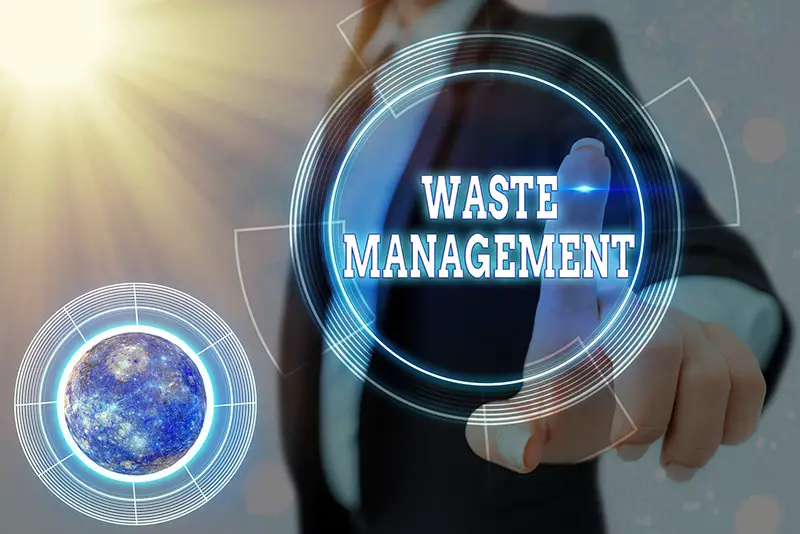Click here to get this post in PDF
Climate change is a subject of real concern. Therefore, companies should attempt to implement ways in their business processes to reduce carbon emissions and create a more sustainable environment and logistics network that benefits all stakeholders.
But what does all of this mean for company waste management?
The importance of managing waste efficiently
Managing waste efficiently is important for companies as it comes with numerous benefits that can enhance overall business performance and have positive environmental and societal impact on local communities.
For instance, plastic and other waste ending up in landfills and being incinerated releases carbon dioxide, a well-known greenhouse gas that contributes to climate change.
Although not particularly harmful at low concentrations, as the amount of carbon dioxide rises in the air, it can lead to potential headaches, dizziness, fainting, and possibly asphyxiation at high concentrations. As a result, companies need to consider how to practise effective waste management in their workplaces.
Waste audits
Firstly, it would be a good idea to have an overview of how waste and resources are being handled in your company. This involves investigating waste production and measuring this so that you have an idea of how much waste actually goes in and out of the company.
Additionally, take note of how current waste management processes are used and speak to employees to get a sense of how employees are managing waste. With this information, you now have better insights that can help inform future waste management plans.
Reduce waste wherever possible
Companies proactively managing waste to prevent or reduce waste are seen as more reputable and trustworthy to consumers.
In fact, a study by Deloitte found that one of consumers’ top five important sustainable or ethical practices that can help drive their purchasing decision is a company’s ability to reduce waste in the manufacturing process.
One way to manage waste is to reduce it where possible – this could mean going paperless and using only recyclable or reusable materials. For example, encourage reusable company water bottles and going digital instead of printing things out.
Reuse waste whenever possible
Another way of efficient waste management is to reuse waste – cardboard boxes, for example, are great for storage boxes, and envelopes can be reused continuously.
Avoid plastic cutlery in work canteens or cafeterias, offering reusable utensils that can simply be washed and used again. The same goes for disposable cups – encourage employees to bring in their own mugs or cups, or simply bulk buy company mugs yourself.
You may be surprised at how many people throw away paper clips as if they are only single-use – they are not! Scrap paper can also be easily reused, so it would be worth having a scrap paper box where employees can take a piece of paper out for taking notes or even take it home as paper for their children’s art projects.
Recycle whatever waste possible
Believe it or not, society has come a long way in terms of recycling. Materials such as paper, plastic, glass, foil, cardboard, and others can now be recycled, but ensure that you check your local council’s guidance on recycling.
Implementing a recycling scheme can go a long way for a company, especially since it puts recycling at the forefront of business operations. Ensure that employees are able to differentiate what waste goes in what recycling bin by colour-coding and putting up signs.
Waste management solution providers such as Sort Flow can help your company with its recycling and waste management if you find that you are struggling with managing your company’s recycling processes and optimising existing operations which can be cheaper than having to model an entirely new waste management system.
Workforce mindset focused on sustainability
To have a successful waste management arrangement that works on reducing, reusing, and recycling waste, the company, must be motivated to be sustainable and ethical in its practices. This means that there needs to be a cultivated work environment that is empowered and determined to do what it takes to reduce waste efficiently in the workplace.
Encouraging employees to act responsibly when it comes to waste management is not enough – we suggest incorporating seminars or discussions about the environment and climate change and why it is crucial for companies, in particular, to manage their waste adequately.
It may be worthwhile having posters or infographics around the office that show important facts and statistics about waste management and its environmental impact. Allow your employees to share their ideas and actively listen to any feedback and recommendations from them – they also know the company best.
You may also like: Tips to Help Reduce your Business Waste
Image source: Depositphotos.com

